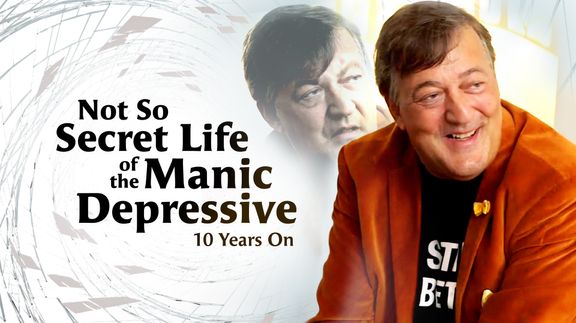

Not so Secret Life of the Manic Depressive: 10 Years On
Ten years ago, in an award-winning series, Stephen Fry first spoke about living with manic depression and began a national conversation about mental health. A decade later, we return to the subject to understand where he and thousands of others diagnosed with bipolar, as it is now called, are now. As a society, do we need to do more for those with the illness? Is the treatment better? Has the stigma been reduced?
Ten years ago, in an award-winning series, Stephen Fry first spoke about living with manic depression and began a national conversation about mental health. A decade later, we return to the subject to understand where he and thousands of others diagnosed with bipolar, as it is now called, are now. As a society, do we need to do more for those with the illness? Is the treatment better? Has the stigma been reduced?
Related Articles
View AllNavigating the Very Real Holiday Blues
The holidays aren’t the most wonderful time of the year for many people. According to research by several major mental health resources, those with mental health diagnoses aren’t…
Mental Health: What Is ‘Normal’? And Are We All Just Faking It?
Both our understanding and treatment of mental illness has improved since we first began thinking of people as abnormal, but we still stigmatize those who struggle to fit in.
The Flexible Brain: Neuroplasticity’s Revolutionary Potential for Training and Healing
The human brain is extraordinary, and the skills we learn as humans seem limitless. But what happens when a brain injury interrupts our everyday functions? Astonishingly enough,…
Good Vibrations: How Sound Therapy Could Cure Depression, Cancer, Alzheimer’s, and More
Though it’s sometimes written off as New-Agey magic, sound healing is being used to treat many of humankind’s most challenging ailments. Intriguing studies have found that sound…
LSD, Psilocybin, Ketamine, and DMT: How These Psychedelics Affect the Brain
Hallucinogenic drugs such as LSD, DMT, and psilocybin are known for their mind-expanding effects, and they have potential for treating some of the trickiest mental afflictions…
Change Your Brain, Change Your Life: The Science of Hacking Your Unconscious Mind
Our unconscious mind controls many of our actions and our thoughts. But science-backed methods of influencing our brain, such as meditation and visualization, can put us back in…